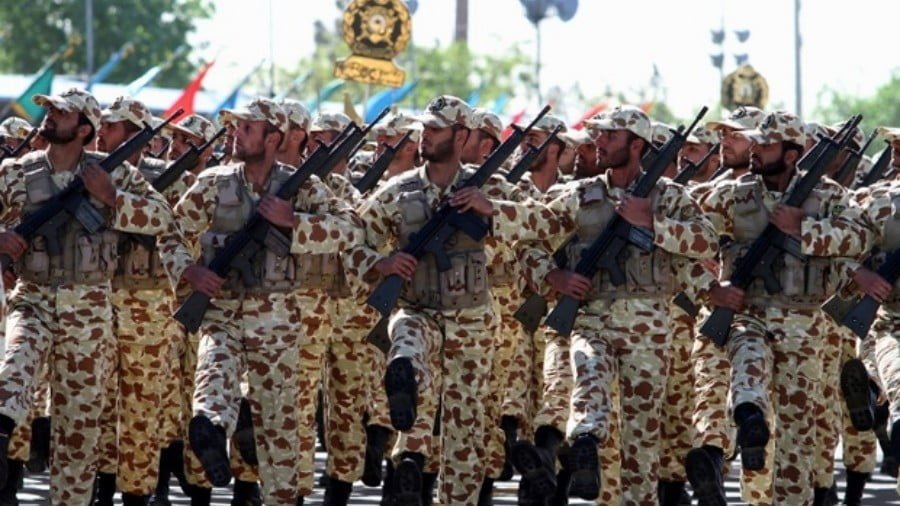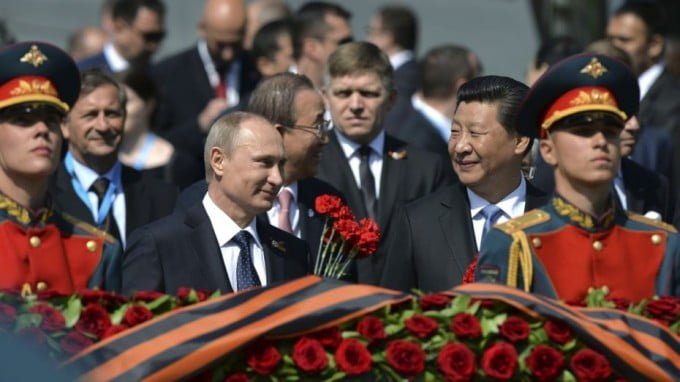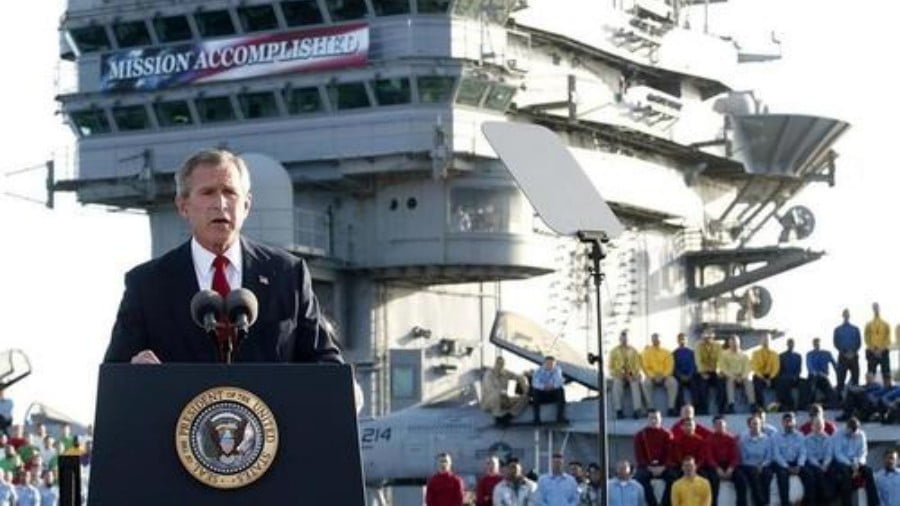Russia Wants Iran Out of Syria. Iranians Aren’t so Happy about That
Partners in the Syrian war and arch-sceptics of Washington, Russia and Iran have come together in recent years as both countries pursue a more hands-on role in the Middle East.
Yet doubts of Russia’s reliability are surfacing in Tehran, as a host of regional players begin to pick their way through tensions in southern Syria.
‘No one can force Iran to do something. Iran is an independent country and its policies are determined based the interests of the Islamic Republic in the world’
– Bahram Qassemi, Iranian Foreign Ministry spokesman
For weeks, there have been signs that Russia is trying limit Iran’s military activity in Syria.
On 17 May, Russian President Vladimir Putin said that with the Syrian army’s recent victories, foreign forces should withdraw from Syria. When asked for clarification, Putin’s envoy said that the president was referring to Turkish, American, Iranian and Hezbollah soldiers.
Then on Monday, days after the Syrian army dropped leaflets warning rebels in Daraa to put down their weapons, both Israeli and Russian officials said publicly that only Syrian soldiers should be present as the government seeks to retake the southern province.
From Tehran, Russia’s about-face has been a surprise, triggering fierce reaction and a debate over whether Moscow can be trusted any longer.
“As long as terrorism exists and the Syrian government wants, Iran will have a presence [in Syria]”, said Iranian foreign ministry spokesman Bahram Qassemi on 21 May.
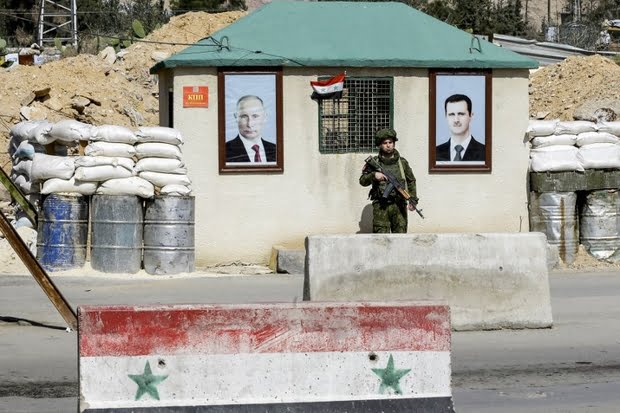
He added: “No one can force Iran to do something. Iran is an independent country and its policies are determined based the interests of the Islamic republic in the world.”
Ali Shamkhani, secretary of Iran’s Supreme National Security Council, said on 27 May that Iran is in Syria at the request of the government in Damascus.
“As long as the threat of terrorism exists in Syria and the legitimate government is in charge, Iran will continue to have its presence [in this country],” he said.
Conservatives’ silence, reformists’ criticism
Perhaps not surprisingly, reformist media – which is typically critical of Tehran’s relationship with Moscow – has expressed concern over the Kremlin’s remarks, while hardline outlets, which prefer that Iran avoid the West and approach Russia and China instead, have stayed silent.
According to reformist daily Etemaad, Russia’s new position is a reflection of Israeli Prime Minister Benjamin Netanyahu’s trip to Moscow on 9 May, a day after US President Donald Trump announced that America would withdraw from the nuclear deal.
Ahead of the trip, Netanyahu said: “In light of what is happening in Syria at the moment, it is necessary to ensure the continued security coordination between the Russian army and the Israeli Defense Forces.”
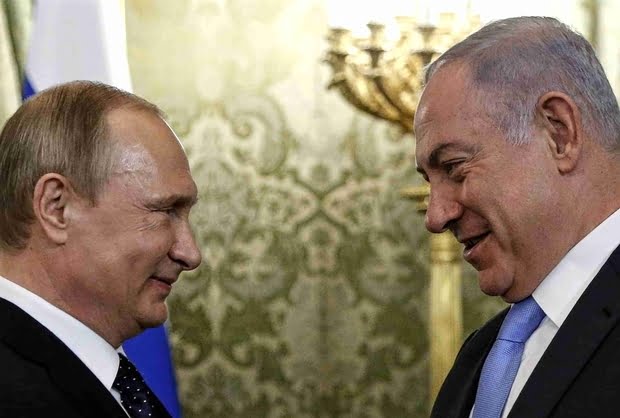
And, as Etemaad noted on 20 May, after the meeting, Putin’s envoy named Hezbollah and Iranian forces as those that must leave Syria, but not Israeli forces.
“It has been many years that the Zionist regime has occupied a part of the soil of Syria in the Golan Heights, and [they] have attacked the different parts of the Syrian land in offensive operations in the past few months,” the paper said.
Meanwhile, moderate-conservative Tabnak news site – which belongs to Mohsen Rezai, the former commander of Iran’s Revolutionary Guard – tied Putin’s position to the US withdrawal from the nuclear deal.
“On the heels of US withdrawal from the JCPOA and Iran’s need for Russia’s support, it is likely that Moscow seeks to get concessions from Iran in Syria, concessions which can make the Russian position regarding the Syrian crisis closer to the West, because one of the West’s conditions for negotiations with Russia over Syria has been [forcing] Iran to retreat from Syria,” argued Tabnak on 18 May.
In another reaction, reformist Shargh newspaper reported that Iran’s arch-enemy Saudi Arabia is investing in Moscow to gradually influence Russia’s position towards Tehran.
‘It is likely that Moscow seeks to get concessions from Iran in Syria, concessions which can make the Russian position regarding the Syrian crisis closer to the West’
– Tabnak news site
Shargh wrote on May 23: “Undoubtedly, Riyadh is pursuing a strategic goal by approaching Moscow. Russia, along with Iran, managed to strengthen its hand in Syria and then along with Tehran and Ankara, [succeed in] setting up the Sochi summit as an alternative to the Geneva talks.
“Under such circumstances, Riyadh seeks to take advantage of its extensive investments in [Russia] as a leverage against Tehran by consolidating its economic relations with Moscow.”
‘Neither ally, nor advocate’
Iranian reformists who spoke to Middle East Eye believe that Russia is seeking to further isolate Iran, now that the US has withdrawn from the nuclear agreement.
Tehran, they said, should seek to strengthen its relationship with Europe and remember that Moscow has a history of stabbing Tehran in the back.
Rasool Hosseini, a reformist foreign policy analyst, told MEE: “Russia has concluded that Iran and the America will have more serious tensions. Therefore, it seems that the possibility of more agreements between Tehran and Washington has faded away. Putin is now rest assured that Tehran doesn’t have too many options and it [Russia] seeks to take advantage of this situation.”

He added: “Under such circumstances, Tehran should strengthen its ties with Europe in order to prevent Russia from playing with Iran’s card during its conflicts with US.”
Fereidoun Majlesi, a former Iranian diplomat, urged the government not to rely fully on Russia or any other country.
“Russia is neither an ally, nor an advocate of Iran. A number of figures in Tehran count on Russia while this is not in the interest of the country. Russia will never sacrifice itself for Iran and it will make a decision based on its own interests,” he said.
Russia, Majlesi said, wants to stay in Syria without any rivals.
“If Iran stays in Syria, this will give a pretext to America to deploy its forces in there too. That’s why Putin’s envoy said all the countries must leave Syria,” he said.
Meanwhile, Iranian conservatives still reason that if Russia was eventually going to fully align with Israel or the US, it wouldn’t have intervened in Syria in the first place.
Hossein Kanani Moghaddam, a conservative analyst and the secretary of Green Party, told MEE: “If Putin was willing to ally with the US or Israel, they [the Russians] wouldn’t definitely stay in Syria and witness the death of at least 100 Russian military advisers.”
However, in remarks indicative of Iran’s increasing caution towards the Kremlin, Moghaddam emphasised: “Russia is a strategic partner of Iran, but if [the Russians] are supposed to turn to Israel or America, Iran will revise its relationships with Russia.”
“As long as [Syrian President] Bashar al-Assad wants, Iran will stay in Syria. What is important is the Syrian government’s decision. Russia can’t decide for Syria and only the government of Syria can make a decision about the presence of military forces.”
Whether Russia is serious about Iranian forces leaving Syria or not, decision-makers in Tehran will be watching with guarded concern.

